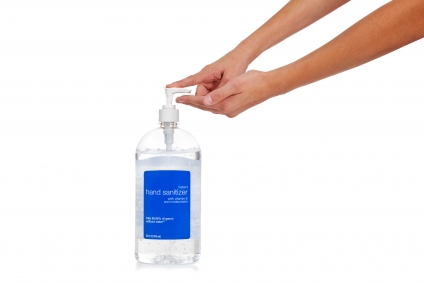Hand Sanitizer at Work May Lower the Number of Sick Days

Employers looking to ward off illness in the office might consider investing in some hand sanitizer dispensers.
Alcohol-based hand disinfectants seem to reduce the number of cases of the common cold, fever and coughing in an office environment, and decrease the number of sick days employees take due to these illnesses, according to a new German study.
The number of participants in the study was quite small, but if future research confirms the findings, hand sanitizers may prove to be a cost-effective way of maintaining employee health, the researchers said.
Good hand hygiene
Researchers recruited 129 administrative employees from a university in Greifswald, a town in northeastern Germany, and from other public administration offices in the country, for the 13-month study. While previous studies had looked at the benefit of hand sanitizers in medical facilities, day care centers and universities, the effect of these disinfectants in workplaces such as public administration offices had not been examined.
About half of the administrative employees were told to maintain normal hand-washing behavior, while the other half were supplied with hand disinfectant and instructed to try to use it at least five times during each workday.
The participants were followed from March 2005 to April 2006. At the end of every month, they filled out surveys saying whether they had experienced symptoms of the common cold, sinusitis, sore throat, fever, cough, bronchitis, pneumonia, influenza or diarrhea, and whether the illness had forced them to take time off from work.
Sign up for the Live Science daily newsletter now
Get the world’s most fascinating discoveries delivered straight to your inbox.
Using hand sanitizers significantly decreased the odds of being absent with a cold, cough, fever or diarrhea, the researchers found.
Coming in sick
The study also found a reduction in symptoms of illness at work, suggesting that using hand disinfectant can reduce productivity losses from workers who come in when they're sick.
"We were able to demonstrate that hand disinfection can easily be introduced and maintained outside clinical settings as a part of the daily hand hygiene," the researchers wrote for an upcoming issue of the journal BMC Infectious Diseases. "Therefore it appears as an interesting and probably cost-efficient method within the scope of company health support programs."
The researchers noted a potential conflict of interest in their study: One of the authors is employed by Bode Chemie, a German company that manufactures hand sanitizer products.










